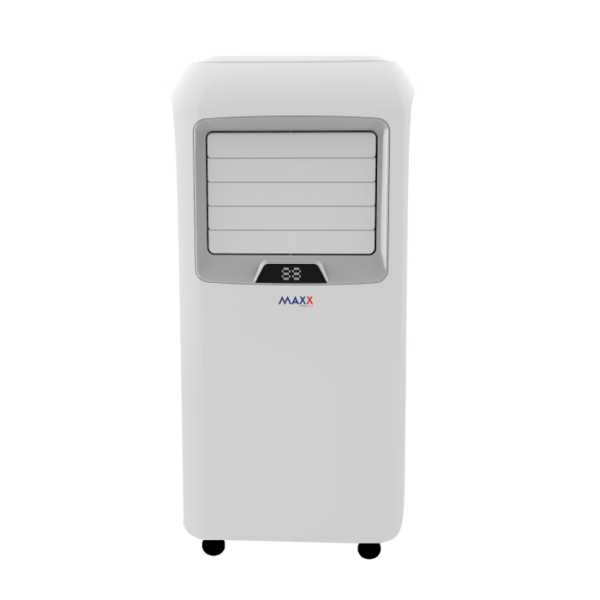A marine air conditioner is a crucial piece of equipment for anyone spending extended periods on a boat or yacht. Whether you're cruising tropical waters or docked in a marina, the heat and humidity can make the cabin uncomfortable. Marine air conditioners provide a solution by cooling and dehumidifying the air to create a more comfortable and livable environment onboard.
In this guide, we’ll explore how marine air conditioners work, the different types available, their key features, and tips for selecting the right unit for your vessel.
How Marine Air Conditioners Work
Marine air conditioners function similarly to household air conditioning units, but they are designed to withstand the marine environment's harsh conditions, including saltwater corrosion, high humidity, and constant movement. These systems use a closed-loop refrigerant cycle, where warm air is drawn in, cooled using refrigerant, and then blown back into the living space. Excess heat is expelled through seawater, which is pumped through the condenser coils to cool the system.
Types of Marine Air Conditioners
There are three main types of marine air conditioners: self-contained units, split systems, and chilled water systems.
- Self-Contained Units: Self-contained units are the most common and affordable option, often used in smaller boats. All components, including the compressor, condenser, and evaporator, are housed in a single unit. These systems are compact, easy to install, and generally powerful enough to cool smaller vessels. However, their cooling capacity is limited to the space they occupy, making them less efficient for larger boats or yachts.
- Split Systems: In split systems, the compressor and condenser are located separately from the air handler (evaporator and fan). This separation allows for quieter operation, as the noisy components can be installed in an engine room or other isolated area. Split systems are more suitable for mid-sized boats, where multiple cabins or spaces need cooling.
- Chilled Water Systems: Chilled water systems are designed for large yachts or commercial vessels. These systems work by cooling water instead of air, which is then circulated throughout the boat. Chilled water systems can cool multiple areas independently, making them highly efficient for large spaces. However, they are more expensive and complex to install and maintain.
Key Features to Consider
When selecting a marine air conditioner, there are several important factors to keep in mind:
- Cooling Capacity (BTU): The cooling capacity of an air conditioner is measured in British Thermal Units (BTUs). For marine air conditioners, it's essential to select a unit with sufficient BTUs to cool your vessel effectively. A general rule is to have around 12,000 BTUs for every 300-400 square feet of space. Boats in tropical climates may require higher capacity units.
- Power Source: Marine air conditioners typically run on shore power when docked or through a generator when at sea. Some modern units can be powered by battery systems or solar panels, making them more energy-efficient and eco-friendly.
- Dehumidification: Since moisture levels onboard can rise due to the proximity to water, look for a unit with dehumidification capabilities. Reducing humidity is not only vital for comfort but also helps protect your vessel from mold and mildew growth.
- Noise Level: A quiet system is crucial for maintaining comfort, especially when spending long hours on the boat. Split systems are generally quieter than self-contained units due to the isolation of the noisy compressor.
- Corrosion Resistance: Marine air conditioners are exposed to saltwater, which can accelerate corrosion. Look for units made with corrosion-resistant materials like stainless steel, as well as components that are specifically designed for the marine environment.
Maintenance Tips
- Regular Cleaning: Marine air conditioners are prone to salt buildup and need regular cleaning to maintain efficiency. This includes cleaning the air filters, evaporator coils, and water intake screens to prevent blockages.
- Check the Seawater Pump: The seawater pump is essential for cooling the system, so ensure it's functioning properly. Check for any blockages in the intake, and make sure the pump is in good working condition to avoid overheating.
- Monitor Refrigerant Levels: Low refrigerant levels can affect the cooling efficiency of your air conditioner. Regularly check and refill refrigerant if needed, and consult a professional if the system isn’t cooling adequately.
Conclusion
A marine air conditioner is an indispensable part of any boat, providing relief from the heat and humidity. Whether you opt for a self-contained unit for a small boat or a sophisticated chilled water system for a luxury yacht, the key is to choose a system that fits your boat’s size, power needs, and climate conditions. Proper installation and maintenance will ensure that your marine air conditioner keeps your cabin cool and comfortable for years to come.






Comments